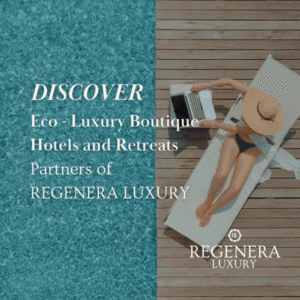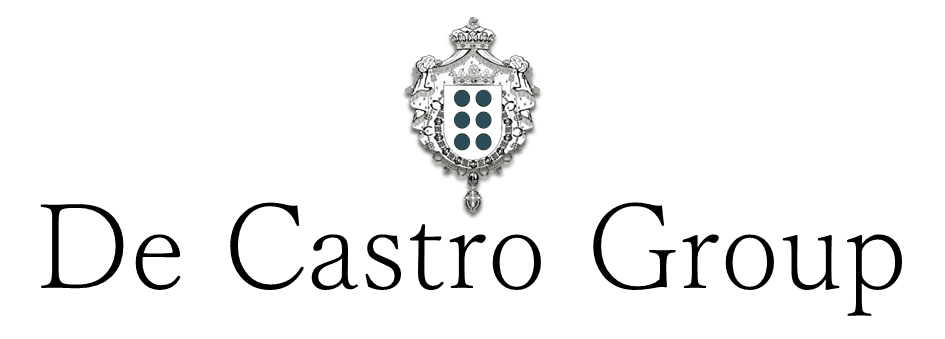Luxury hospitality is evolving rapidly. What was once defined by exclusivity and status is now being reshaped by a deeper, more meaningful understanding of what true luxury really entails. This evolution is not just about being sustainable—it’s about going beyond. We’re entering the era of regenerative marketing, where the focus is not merely on minimizing harm but on actively creating positive impacts on the environment, local communities, and guests’ experiences.
As someone who has spent over two decades working for a in 4 continents better hospitality industry, I’ve witnessed this shift firsthand. I’ve seen how traditional marketing approaches, which emphasize product strengths and increasing sales, are losing relevance in the face of growing global challenges. Sustainable marketing, which emerged as a responsible alternative, does a better job of considering environmental impact. Yet, the most exciting and transformative approach—regenerative marketing—is the future of luxury hospitality.
Before we dive deeper into the benefits of this groundbreaking strategy, let’s look at what defines each approach and how regenerative marketing offers a more profound connection to both nature and people.
ANALYZING THE APPROACHES TO MARKETING: TRADITIONAL, SUSTAINABLE, REGENERATIVE
For luxury boutique hotels and retreats, the differences between these three approaches—traditional, sustainable, and regenerative marketing—are stark. In many ways, each has shaped the industry in various capacities. However, regenerative marketing is not only a response to the increasing demands for social and environmental responsibility; it is a pioneering force that sets brands up for long-term resilience and success.

Take a look at the table below to see the comparison between these three approaches:
COMPARISON TABLE:
Traditional, Sustainable, and Regenerative Marketing for Luxury Boutique Hotels & Retreats
| KPI | TRADITIONAL MARKETING | SUSTAINABLE MARKETING | REGENERATIVE MARKETING |
|---|---|---|---|
| Focus on Profit | ✔ Prioritizes short-term profit | ✔ Balances profit with responsibility | ✔ Long-term profitability through value-driven growth, aligned with social and environmental outcomes |
| Environmental Consideration | ✖ Minimal consideration | ✔ Reduces negative impacts | ✔ Enhances ecosystems, biodiversity, and natural resources (e.g., rewilding, regenerative agriculture) |
| Community Involvement | ✖ Rarely addressed | ✔ Some local engagement | ✔ Deep co-creation with local communities; empowering them as integral to the hotel’s regenerative success |
| Value-Driven Messaging | ✔ Focus on luxury, status | ✔ Eco-conscious communication | ✔ Luxury redefined through purpose-driven, regenerative values, connecting with guests who seek meaningful impact |
| Resource Efficiency | ✖ Low focus | ✔ Reduces resource use | ✔ Active regeneration of resources, embracing circular economy principles (e.g., waste-to-energy systems) |
| Long-Term Stakeholder Benefit | ✖ Focus on shareholder gain | ✔ Considers wider stakeholders | ✔ Benefits all stakeholders—owners, employees, communities, environment—through value creation that regenerates both people and nature |
| Local Economic Contribution | ✖ Minimal contribution | ✔ Local sourcing | ✔ Strong integration with local economy, supporting job creation and empowering local artisans and producers |
| Biodiversity Enhancement | ✖ Not addressed | ✖ Minimizes biodiversity harm | ✔ Actively restores biodiversity, implementing projects like reforestation, wetland restoration, and habitat creation |
| Cultural Preservation | ✖ Not prioritized | ✔ Promotes local culture | ✔ Deep focus on preserving and promoting cultural heritage, ensuring authentic and immersive guest experiences |
| Wellness and Holistic Experience | ✖ Focus on material luxury | ✔ Adds eco-friendly wellness | ✔ Holistic luxury integrating mind, body, and planet, delivering transformative experiences linked to regeneration and well-being |
| Carbon Reduction Strategies | ✖ Not considered | ✔ Aims for carbon neutrality | ✔ Achieves carbon positivity through renewable energy, carbon sequestration, and beyond-zero initiatives |
| Guest Experience Enrichment | ✔ Focus on indulgence | ✔ Adds sustainability | ✔ Prioritizes meaningful, purpose-driven experiences that connect guests deeply to nature, wellness, and community regeneration |
| Innovation Focus | ✔ Focus on aesthetics | ✔ Introduces eco-friendly technologies | ✔ Leads innovation with regenerative solutions (e.g., biomaterials, renewable energy innovations, community-centric design) |
| Transparency in Practices | ✖ Limited or selective | ✔ Sustainable transparency | ✔ Full transparency with measurable social and ecological outcomes shared with guests and stakeholders |
| Measurable Environmental Impact | ✖ No measurement | ✔ Tracks carbon, water, waste | ✔ Goes beyond reduction; tracks regenerative outcomes like ecosystem restoration, biodiversity growth, and resource regeneration |
| Social Justice and Equity | ✖ Not addressed | ✔ Includes fair labor practices | ✔ Fully integrated into operations, ensuring social justice, fair labor, diversity, and equal opportunities for local communities |
| Ethical Supply Chain Management | ✖ Focused on efficiency | ✔ Ethical sourcing practices | ✔ Deeply integrated regenerative supply chain, prioritizing local, ethical producers and regenerative agriculture |
| Waste Management and Circular Economy | ✖ Minimal waste focus | ✔ Reduces, reuses, recycles | ✔ Fully embraces circular economy with zero waste goals and innovative waste-to-resource systems |
| Regenerative Agriculture Support | ✖ Not a priority | ✖ Limited support for organic farming | ✔ Strong support for regenerative agriculture, sourcing materials and ingredients from farms that regenerate soil and biodiversity |
| Customer Education and Awareness | ✔ Focus on brand status | ✔ Informs guests about sustainability | ✔ Engages guests with educational programs on regeneration, fostering deep involvement in local and environmental initiatives |
| Brand Loyalty through Values | ✔ Built on exclusivity | ✔ Eco-conscious guest loyalty | ✔ Deep, emotional loyalty by aligning luxury with meaningful regenerative values, connecting guests with their purpose and impact on the world |
| Partnership with NGOs and Local Bodies | ✖ Limited involvement | ✔ Collaborates with NGOs | ✔ Authentic, long-term partnerships with NGOs, local governments, and grassroots organizations to maximize social and ecological impact |
| Restoration of Natural Ecosystems | ✖ Not a priority | ✖ Focus on minimizing harm | ✔ Actively restores ecosystems through biodiversity projects like tree planting, coral reef restoration, and wildlife corridors |
| Cultural and Heritage Integration | ✖ Minimal attention to culture | ✔ Promotes local traditions | ✔ Embeds cultural heritage deeply into operations, offering guests authentic, immersive experiences that preserve and celebrate local culture |
| Measurable Social Impact | ✖ No focus on social outcomes | ✔ Tracks job creation, social well-being | ✔ Measures tangible social outcomes like job creation, education programs, and health improvements in local communities |
| Brand Differentiation and Leadership | ✔ Based on exclusivity and status | ✔ Promotes eco-conscious brand image | ✔ Positions brand as a leader and innovator in the regenerative luxury space, setting the hotel apart as a pioneer in transformational tourism |
| Pioneering for Future Generations | ✖ Focuses on short-term consumer trends | ✔ Attracts eco-conscious travelers | ✔ Pioneers a future-proof brand by attracting younger generations (Millennials, Gen Z) who prioritize regeneration, securing long-term demand and relevance |
| Long-Term Economic Resilience | ✖ Vulnerable to market shifts | ✔ Moderately resilient through eco-practices | ✔ Highly resilient by building regenerative systems that offer environmental, social, and financial sustainability, adapting to future challenges and trends |
Source: Hector De Castro
CASE STUDY: A CARIBBEAN LUXURY BOUTIQUE HOTEL FACING ENVIRONMENTAL DEGRADATION
Imagine a luxury boutique hotel located along a pristine coastal area. The hotel is battling coastal erosion due to rising sea levels, alongside deforestation caused by nearby development. This is impacting the hotel’s natural beauty and appeal, causing concern among guests, many of whom are eco-conscious travelers. The hotel needs to rethink its strategy to stay relevant in the competitive luxury market.
Here’s how each marketing approach would handle the situation:
| Aspect | Traditional Marketing | Sustainable Marketing | Regenerative Marketing |
|---|---|---|---|
| Core Focus | Restore aesthetic appeal, maintain luxury branding. | Design marketing strategies to minimize environmental harm, promote eco-friendly practices. | Design marketing strategies that also restore and enhance ecosystems, provide meaningful engagement with nature and community for guests. |
| Response to sargassum and coastal erosion | Artificial beach restoration, temporary fixes. | cleaning and carbon footprint reduction, but no direct erosion nor sargassum action. | Design marketing strategies to implement natural defenses like mangrove reforestation, dune restoration, or coral reef rehabilitation. |
| Message to Guests | Focus on luxury, downplay ecological issues. | Highlight sustainable initiatives, such as eco amenities. | Design marketing strategies to invite guests to actively participate in restoration efforts, creating a purpose-driven and immersive experience. |
| Community Involvement | Minimal, hotel is a private enclave. | Partnerships with local businesses but limited collaboration. | Design marketing strategies to co-develop environmental and economic solutions with the community, fostering empowerment and mutual benefit. |
| Environmental Impact | Short-term solutions that may further degrade ecosystems. | Design marketing strategies that try to minimize harm but may not address root causes. | Design marketing strategies to enhances biodiversity and resilience, creating long-term ecological regeneration and sustainability. |
| Guest Experience | Exclusive, and more detached from local issues. | Focused on eco-conscious guests seeking lower impact. | Deep, purpose-driven engagement with the environment, offering transformative experiences through participation. |
CONCLUSION: WHY REGENERATIVE MARKETING IS THE FUTURE OF LUXURY HOSPITALITY MARKETING
As luxury boutique hotels and retreats face a rapidly changing world, regenerative marketing emerges as the clear winner in providing long-term resilience, deep guest loyalty, and the ability to transform the way we engage with our surroundings. Regenerative marketing not only addresses immediate environmental and social challenges but actively creates a better future by aligning brand values with the rising demand for purposeful luxury experiences.
In my work with REGENERA LUXURY, I’ve seen firsthand how these regenerative practices lead to deeper connections with guests, who return not just for indulgence but for the meaning and impact behind their stay. Working with marketing experts like BI’TULUM, we are driving this change by creating marketing strategies that not only position hotels as leaders in luxury but also as pioneers in the regenerative movement.
The future of luxury isn’t just about sustainability—it’s about leaving a positive legacy. As younger generations, especially Millennials and Gen Z, increasingly seek brands that reflect their values, regenerative marketing is uniquely positioned to meet this demand. For luxury boutique hotels and retreats, the time to act is now.
Embrace regeneration, lead the way, and secure a future where both your business and the planet thrive together.

